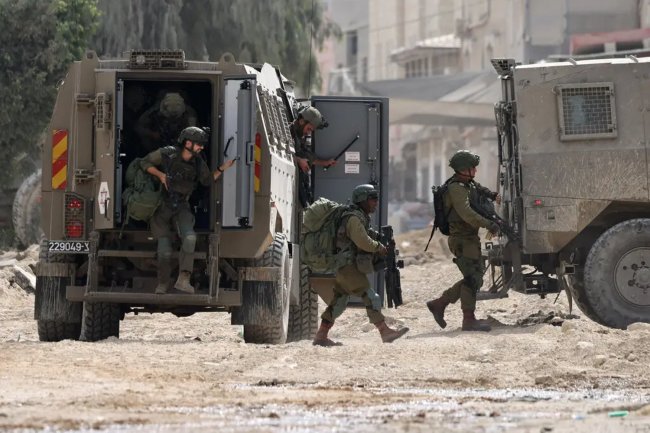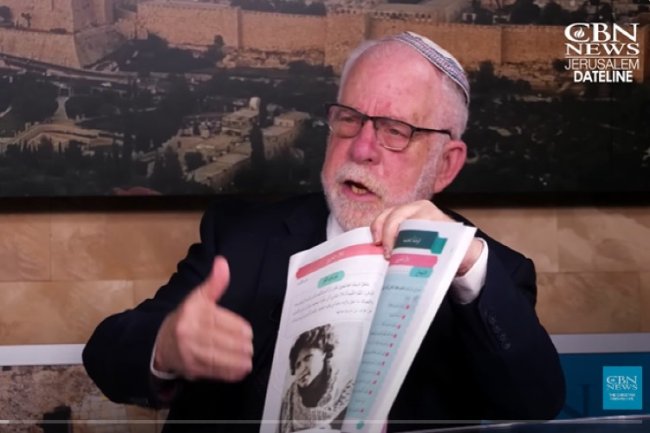THE RELATIONSHIP BETWEEN THE IDF AND ISRAELI SOCIETY MUST BE REEVALUATED.

By AMICHAI COHEN, GILAD MALACH, JANUARY 6, 2024 03:19
Reservists train during a battalion wide exercise in the Golan Heights. / (photo credit: IDF SPOKESPERSON'S UNIT)
There are benefits to waiting for a decision. After the war, there will most likely be a change of military leadership and elections.
The terror attacks on October 7 shattered a number of widely held perceptions of security in Israel. Nearly three months on, there seems to be more to consider than just Israel's stance on Hamas and its containment strategy along the border with the Gaza Strip.
Indeed, the relationship between the IDF and Israeli society must be evaluated.
Currently, this reassessment is based on at least three specific issues that require government attention: an increase in the number of combat troops, the duration of conscription, and haredi responsibility.
Reassess the situation: these three problems are definitely interconnected, but each has its own characteristics. In terms of the duration of military service, the general consensus is that the idea of shortening compulsory service, which has already been approved by the Ministry of Finance and the Ministry of Defense, will now be suspended.
For combat soldiers, it is reasonable to expect that the service will not only be shortened but also possibly extended.
The economy will be severely affected by increasing military service time, especially as it delays the entry of so many young adults into the workforce and higher education.
According to current estimates, the addition of military service every month results in a reduction of about two billion NIS in the country's GDP annually.
An extension of services that does not go according to plan by three or four months will have a significant economic impact in times of panic.
IDF commanders believe that they will need more soldiers than they currently have, so there is no doubt that extending the service of soldiers is a necessary measure.
In addition to extending mandatory service, the IDF had to postpone the release of soldiers from reserve duty, increase the number of reserve duty days served, and increase the number of women in combat units. All these changes will have significant social consequences.
Relatively small groups—only a small part of the working-age population—will be more burdened if the scale of reserve duties is expanded.
Opening additional combat units for female soldiers is also a socially insignificant measure. Although women working in combat roles have broad support, the expansion is likely to elicit protests from those who are less supportive. In the past, we have even witnessed threats from certain groups of people to leave the military if it is implemented, which shows that many social tensions can arise in this area.
Increased recruitment among ultra-Orthodox (Haredi) Jews, who do not normally serve in the IDF and instead devote themselves to Torah study, could offset the increase in combat soldiers. In addition, the Israeli leaders had to make some tough decisions.
Even before the war, Haredi people strongly opposed the efforts of the parties to pass a law granting significant exemptions from military service to Haredi people. This law is now clearly canceled.
What instruments can be used to submit draft haredim to the IDF? Imposing? Financial pressure? Define a significant recruitment goal. The public's perception of haredi military service, including among the haredim themselves, has a significant impact on these questions even though political answers are necessary. As a result, this issue again became the subject of wide public debate.
These three examples show that major decisions need to be made regarding IDF personnel needs. All these topics are currently being discussed, and the political and military leadership of Israel has already created the basis for announcing the decision. It is highly recommended not to be too hasty in discussing these issues, given their impending social and economic impact. They should be postponed for two reasons:
First, the substantive. There is a clear advantage to making decisions after proper assessment and careful consideration of military needs rather than in an uncertain state of war. After the trauma that occurred on October 7 and as the fighting continues, it is very likely that fear will determine the decision. Although the long-term security arrangements for the Gaza Strip are not yet clear, we cannot calculate the number of personnel the IDF needs.
Public legitimacy is also important. Military commanders and political leaders, who have recently failed to ensure the security of Israeli citizens, do not deserve to make long-term decisions that have an impact on areas where they have completely failed.
Elections will be held, and military leaders are likely to change after the war. The upcoming leadership, which will have wide public support, will have to make a decision on this important issue.
Dr. Gilad Malach is director of the Ultra-Orthodox Program in Israel at the Israel Democracy Institute, and Prof. Amichai Cohen is a senior fellow at the Israel Democracy Institute and a member of the Faculty of Law at the Ono Academic College.
News Sources : https://www.jpost.com/opinion/article-780850?dicbo=v2-OEDdF54
What's Your Reaction?





















